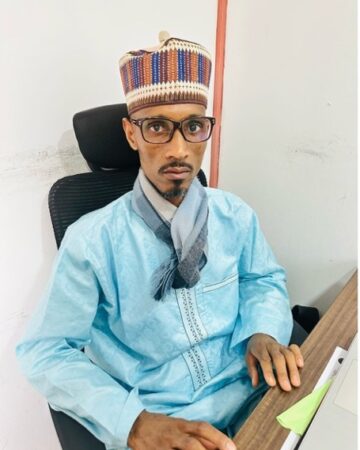
Dr. Mansour’s career began with his recruitment at the Ministry of Scientific Research and Innovation of Cameroon as a state researcher after completion of his MSc degree in Medical Bacteriology and virology. He was assigned to the Institute of Medical Research and Medicinal Plants Studies and later on appointed deputy head of the Laboratory of Molecular Biology and Biotechnology, Center for Research on Health and Priority Pathologies. This recognition is consequent to his achievements as a researcher and team manager. Specifically, as a researcher, Dr. Mansour initiated and took part in projects that led to the publication of seventeen research articles in peer-reviewed journals, with six as first authors. Notably, also, the research work he undertook since while working as a researcher and involved in the above-mentioned projects dealing with antimicrobial resistance or sexually transmitted bacterial vaginoses,
Dr. Mansour completed a Ph.D. program in Clinical Microbiology at the University of Yaoundé I with first-class distinction in 2023. Currently, he supervises the laboratory’s research staff and provides leadership in the development of capacity, information, and molecular biology tools to foster the diagnosis, management, and prevention of local health priorities such as malaria, tuberculosis, schistosomiasis, and bacterial infections, just to cite a few. This consolidates his personal research goals, where his main research interest is in clinical microbiology with a focus on antimicrobial resistance.
Since Dr. Mansour’s MSc degree, he has been working on methicillin-resistant Staphylococcus aureus, which is a great public health concern and one of the priorities of the World Health Organization. In the northern regions of Cameroon, where he has been conducting his research since 2011, there is a problem in the care and treatment of bacterial infections due to the lack of adequate technical facilities and the very low standard of care compared to other regions of the country. Dr. Mansour choosed this research axis to understand the root causes of these problems and set up a biobank of samples from which future studies on antibacterial resistance can be carried out using the database generated on antibiotic resistance for our country. Also, he intends to improve the awareness and understanding of the phenomenon of antimicrobial resistance for clinicians and the general population, to reduce the incidence of infection due to multi-resistant bacteria in our area, and also to optimize the use of antibiotics in our country.